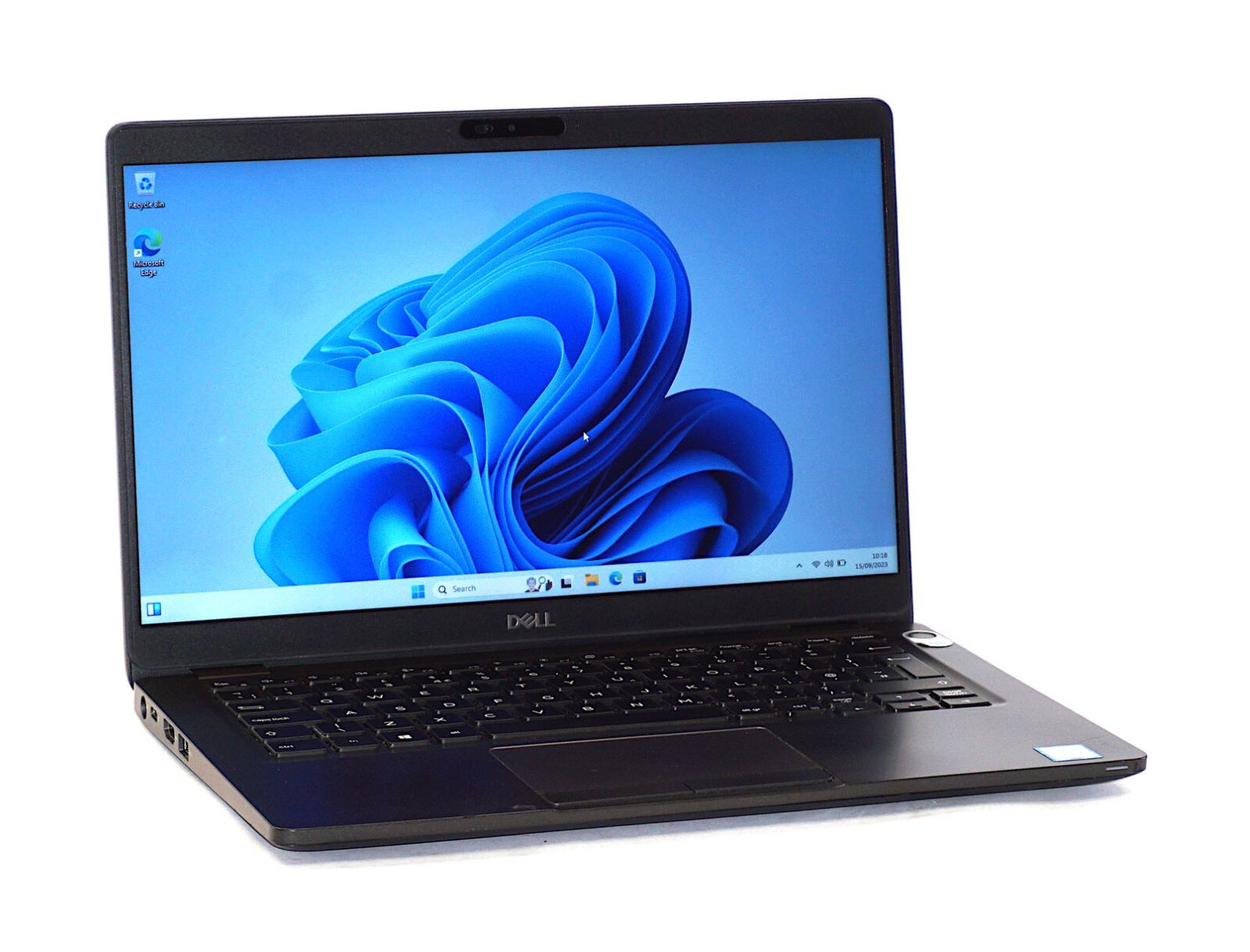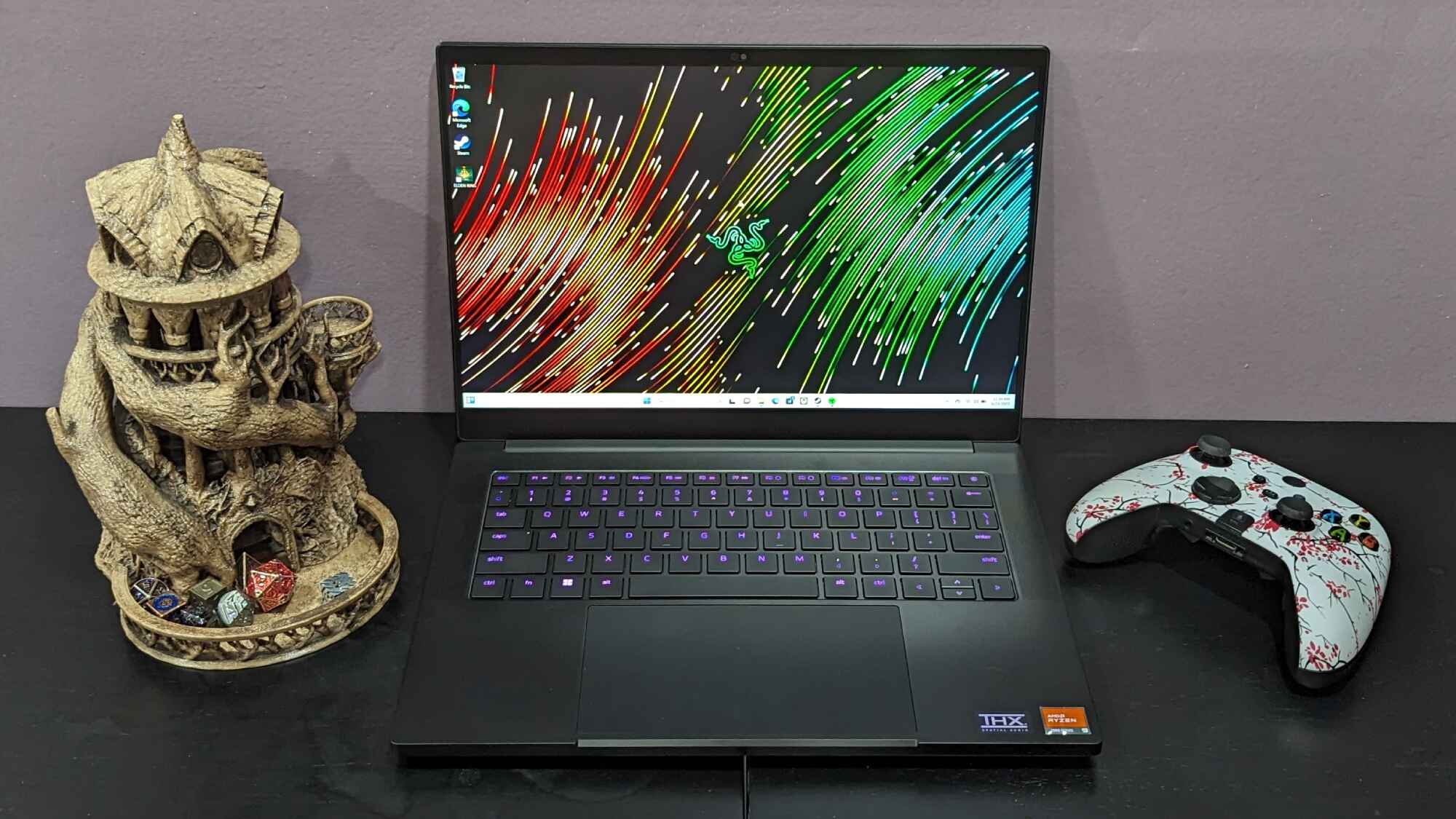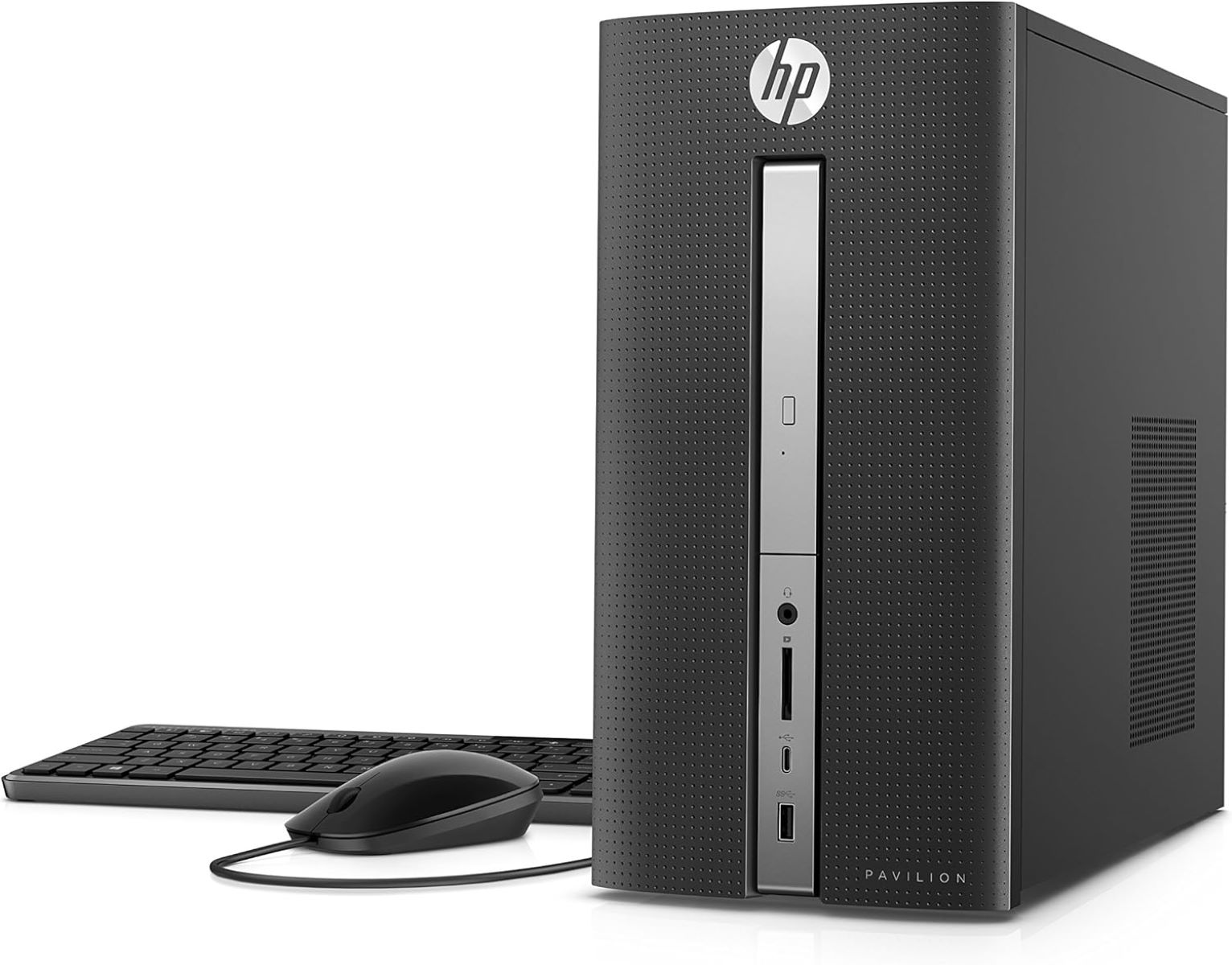Introduction
Welcome to the world of technology, where gadgets and devices continually evolve to meet our needs and desires. As technology advances, the specifications and terminologies associated with these devices can be overwhelming and confusing. If you are in the market for a new computer or laptop, you may have come across terms like “8GB memory” and “256GB SSD.” But what do these specifications mean, and how do they impact your computing experience?
Understanding the basics of computer components is essential to make an informed decision when purchasing a new device. In this article, we will dive into the world of memory and storage to demystify the meaning behind “8GB memory” and “256GB SSD.” We will also explore the benefits of having these specifications in your device and help you determine if they are sufficient for your needs.
Whether you are a tech-savvy individual or just getting started with computers, this article will provide you with a clear understanding of what 8GB memory and 256GB SSD entail, helping you make an informed decision when choosing your next computing device. So let’s delve into the world of memory and storage and explore the possibilities they offer.
Understanding Memory and Storage
Before we delve into the specifics of 8GB memory and 256GB SSD, let’s first understand the difference between memory and storage.
Memory, often referred to as RAM (Random Access Memory), is the temporary workspace that your computer uses to store data and execute tasks. It is a crucial component that affects the overall performance and speed of your device. When you open a program or run multiple applications simultaneously, the data is temporarily stored in the memory for quick access. However, once you shut down your computer, the data in the memory is erased.
On the other hand, storage refers to the long-term capacity of your device to store files, documents, programs, and operating systems even when the device is powered off. Storage is typically represented in the form of hard disk drives (HDD) or solid state drives (SSD). Unlike memory, which is volatile and transient, storage provides a permanent repository for your data.
Now that we have a basic understanding of memory and storage, let’s dive into the specifics of 8GB memory and 256GB SSD.
Memory, as mentioned earlier, plays a crucial role in determining the speed and multitasking capabilities of your device. A higher memory capacity allows your computer to handle more programs and processes simultaneously without experiencing lag or slowdowns. With 8GB of memory, you can comfortably run multiple applications, browse the internet, stream videos, and work on various tasks simultaneously, ensuring a smooth and efficient computing experience.
On the storage front, 256GB SSD refers to a solid-state drive with a storage capacity of 256 gigabytes. SSDs are a more advanced and faster alternative to traditional hard disk drives (HDDs). Solid-state drives use flash memory to store data, resulting in faster boot times, quicker file transfers, and improved overall system performance. With 256GB of SSD storage, you have ample space to store your files, documents, applications, and even a collection of multimedia files such as photos, videos, and music.
Having a solid understanding of memory and storage is crucial when shopping for a new computer or laptop, as you want to ensure that the specifications align with your computing requirements. In the next sections, we will explore the benefits of having 8GB memory and 256GB SSD in more detail to help you make an informed decision about your next computing device.
What is 8GB Memory?
Memory, also known as RAM (Random Access Memory), is a vital component in any computing device. It is responsible for temporarily storing data that the computer needs to quickly access and execute tasks. When you open a program or run multiple applications simultaneously, the data is loaded into the memory for faster access and processing.
In the case of 8GB memory, it refers to a memory capacity of 8 gigabytes. This means that the computer has 8 billion bytes of memory available for storing data and executing programs. The larger the memory capacity, the more data the computer can handle at a given time, resulting in faster and more efficient performance.
With 8GB memory, your computer is capable of handling a wide range of tasks without experiencing significant slowdowns or performance issues. Whether you are a casual user who needs to browse the internet, handle emails, and use basic office applications, or a power user who engages in resource-intensive activities like multimedia editing, programming, or gaming, 8GB memory provides ample room for smooth multitasking and seamless operation.
When it comes to memory, it’s important to understand that having more is not always better. The memory capacity you need depends on your specific computing needs. If you are a casual user who primarily uses the computer for web browsing, word processing, and light multitasking, 8GB memory is more than sufficient to handle your day-to-day tasks.
However, if you engage in more demanding activities like video editing, 3D rendering, or running virtual machines, you may benefit from having a higher memory capacity. These tasks require more resources, and having 16GB or 32GB memory would ensure smoother and faster performance.
Overall, 8GB memory is a versatile and widely adopted choice for most users, striking a balance between performance and cost. It provides enough memory capacity to handle everyday computing tasks for the majority of users, making it a popular choice in laptops, desktops, and other computing devices.
Now that we have explored what 8GB memory entails, let’s move on to understanding what 256GB SSD means and its significance in the realm of storage.
What is 256GB SSD?
When it comes to storage, solid-state drives (SSDs) have revolutionized the way data is stored and accessed in computing devices. A 256GB SSD refers to a solid-state drive with a storage capacity of 256 gigabytes. Unlike traditional hard disk drives (HDDs), which use spinning disks and mechanical parts to store and retrieve data, SSDs utilize flash memory technology that has no moving parts, resulting in faster performance and enhanced reliability.
The primary advantage of a 256GB SSD is its speed. SSDs are significantly faster than HDDs when it comes to data access and retrieval. This translates to quicker boot times, faster file transfers, and improved overall system responsiveness. With a 256GB SSD, your computer will start up within seconds, and applications will launch in the blink of an eye, providing a seamless and enjoyable user experience.
In addition to speed, SSDs also offer other benefits such as energy efficiency and durability. Due to the lack of moving parts, SSDs consume less power, resulting in better battery life for laptops and lower electricity costs for desktop systems. Furthermore, SSDs are more resistant to shock, vibration, and temperature fluctuations, making them ideal for portable devices that are frequently moved or subjected to harsh environments.
With a storage capacity of 256GB, you have ample space to store your files, documents, applications, and even a collection of multimedia files. This capacity is well-suited for most users, allowing them to store a significant amount of data without worrying about running out of space. However, it’s worth noting that if you heavily rely on high-definition videos or work with large multimedia files, you may require a higher storage capacity. In such cases, SSDs with larger capacities like 512GB or 1TB would be more suitable.
Ultimately, a 256GB SSD is an excellent choice for individuals who prioritize speed, reliability, and energy efficiency in their computing devices. It offers ample storage capacity for most users and delivers significant performance improvements compared to traditional HDDs. Whether you use your computer for work, entertainment, or both, a 256GB SSD will enhance your overall computing experience and allow you to seamlessly store and retrieve your data.
Now that we have explored the benefits of having 8GB memory and a 256GB SSD, let’s discuss how these specifications can positively impact your computing needs.
The Benefits of Having 8GB Memory
Having 8GB of memory in your computing device brings several benefits that enhance your overall user experience and productivity. Let’s explore some of the advantages of having this memory capacity:
1. Smooth Multitasking: With 8GB memory, you can seamlessly switch between multiple applications and tasks without experiencing significant slowdowns or performance issues. Whether you need to browse the internet, check emails, edit documents, or run productivity software, 8GB memory provides enough capacity to handle these tasks efficiently.
2. Improved System Performance: More memory allows your computer to store frequently used data for quick access, resulting in faster performance. Applications will load faster, and you’ll experience reduced lag or delays when working with resource-intensive tasks like photo or video editing software.
3. Enhanced Gaming Experience: If you are a gamer, having 8GB memory can significantly improve your gaming experience. It enables you to run the latest games smoothly, with faster load times and increased responsiveness, avoiding the frustration of lag or stuttering gameplay.
4. Efficient Virtualization: Virtualization allows you to run multiple operating systems or virtual machines simultaneously on your computer. With 8GB memory, you can allocate sufficient resources to each virtual environment, ensuring smooth operation and preventing system slowdowns.
5. Future-Proofing: As technology continues to advance, software and applications tend to become more resource-intensive. By having 8GB memory, you are preparing your device for the future, accommodating the increasing demands of software and ensuring compatibility with upcoming updates.
6. Cost-Effective: 8GB memory strikes a good balance between performance and cost. It is a widely adopted choice for most users, offering sufficient capacity for everyday tasks without inflating the price of the device. You get a noticeable performance boost without breaking the bank.
While 8GB memory provides ample capacity for most users, it’s important to consider your specific computing needs. If you engage in resource-intensive activities like multimedia editing, gaming, or running virtual machines, you may benefit from higher memory capacities like 16GB or 32GB. However, for the average user who primarily uses their device for everyday tasks and light multitasking, 8GB memory is more than sufficient and offers an excellent balance of performance and affordability.
Now that we have explored the benefits of having 8GB memory, let’s move on to discuss the advantages of having a 256GB SSD in your device.
The Benefits of Having 256GB SSD
Having a 256GB SSD in your computing device brings numerous benefits that significantly improve your overall user experience and productivity. Let’s delve into the advantages of having this storage capacity:
1. Faster Performance: One of the primary benefits of a 256GB SSD is its speed. Compared to traditional hard disk drives (HDDs), SSDs offer significantly faster data transfer rates, resulting in reduced load times for operating systems, applications, and files. This means you can boot up your computer faster, launch applications quickly, and experience smoother overall system performance.
2. Quick File Access: With a 256GB SSD, accessing and retrieving your files becomes virtually instantaneous. Whether you’re working on documents, editing photos or videos, or accessing large multimedia files, SSDs allow for quicker file access, eliminating frustrating delays that can occur with traditional HDDs.
3. Improved Reliability: SSDs have no moving parts, making them more resistant to physical damage caused by shock, vibrations, or accidental drops. This improves the overall reliability of your data storage and reduces the risk of data loss due to mechanical failure.
4. Energy Efficiency: SSDs are more energy-efficient compared to HDDs as they consume less power. This leads to longer battery life for laptops and reduced energy consumption for desktop systems, allowing for a greener computing experience.
5. Silent Operation: Since SSDs don’t have moving parts, they produce virtually no noise during operation. This means you can enjoy a quieter computing environment without the whirring or clicking sounds typically associated with HDDs.
6. Compact and Lightweight: SSDs are generally smaller and lighter than traditional HDDs, making them a perfect choice for slim laptops, ultrabooks, and portable devices. If portability is a priority, a 256GB SSD provides ample storage without adding additional weight or bulk.
7. Extended Lifespan: SSDs have a longer lifespan compared to HDDs, as they are less susceptible to wear and tear. With proper usage and maintenance, a 256GB SSD can withstand years of continuous use, making it a reliable long-term storage solution.
While the benefits of having a 256GB SSD are clear, it’s essential to consider your specific storage needs. If you work extensively with large video files, high-resolution images, or require a vast library of multimedia content, you may want to opt for higher storage capacities such as 512GB or 1TB. However, for the average user who needs storage for everyday files, documents, applications, and some multimedia content, a 256GB SSD provides ample capacity with the added benefits of speed, reliability, and energy efficiency.
Now that we have explored the benefits of 256GB SSD, let’s proceed to the next section to evaluate whether 8GB memory and 256GB SSD are sufficient for your computing needs.
Is 8GB Memory and 256GB SSD Enough for Your Needs?
Now that we have a clear understanding of 8GB memory and 256GB SSD and their respective benefits, you may be wondering if these specifications are sufficient for your computing needs. Determining the appropriate memory and storage capacity depends on your specific requirements and usage patterns. Let’s evaluate whether 8GB memory and 256GB SSD meet your needs:
1. Computing Tasks: Consider the type of tasks you regularly perform on your device. If you use your computer for basic tasks like web browsing, word processing, email, and light multitasking, then 8GB memory is generally more than enough for smooth performance. Similarly, if you primarily use your computer for everyday files, documents, and a few applications, a 256GB SSD will provide ample storage capacity.
2. Multimedia Requirements: For users who work extensively with multimedia files, such as professional photographers or videographers, a larger storage capacity may be necessary. High-resolution images, raw video footage, and complex editing projects can consume significant storage space. In such cases, supplementing a 256GB SSD with an external hard drive or opting for a higher storage capacity SSD would be more suitable.
3. Gaming and Resource-Intensive Software: If you are a gamer or use resource-intensive software like video editing or 3D rendering applications, you may benefit from additional memory capacity. Although 8GB memory is sufficient for most games and applications, some demanding titles and software may require more RAM. Consider upgrading to 16GB or 32GB memory if your usage falls into this category.
4. Future Requirements: It’s important to consider your future needs when choosing memory and storage capacity. As technology advances and software becomes more resource-intensive, higher memory and storage capacities may become necessary. If you plan to keep your device for a few years or want to future-proof your purchase, going for 16GB memory and a higher storage capacity SSD may be a wise decision.
5. Budget: Of course, your budget plays a crucial role in determining your choice of memory and storage capacity. 8GB memory and 256GB SSD offer a balance between performance and affordability. However, if your budget allows for higher specifications, consider investing in a higher memory capacity and larger SSD for a more enhanced computing experience.
Ultimately, the decision of whether 8GB memory and 256GB SSD are enough for your needs depends on your specific requirements, usage patterns, future considerations, and budget. Evaluate your computing needs based on the factors mentioned above to make an informed decision.
Now that we have discussed the adequacy of 8GB memory and 256GB SSD, let’s conclude this article by summarizing the key points we covered.
Conclusion
In today’s technology-driven world, understanding the specifications and terminologies associated with computer devices can be overwhelming. In this article, we explored the meaning and benefits of having 8GB memory and 256GB SSD in your computing device.
Memory, represented by 8GB, is responsible for storing and executing tasks in your computer. It allows for smooth multitasking, improved system performance, and efficient virtualization. On the other hand, a 256GB SSD provides faster performance, quick file access, improved reliability, energy efficiency, silent operation, compactness, and extended lifespan.
While 8GB memory and 256GB SSD offer significant advantages for most users’ computing needs, it’s essential to consider your specific requirements. Factors such as the types of tasks you perform, multimedia requirements, gaming or resource-intensive software usage, future needs, and budget should be taken into account when deciding on the memory and storage capacity.
Whether you are a casual user who primarily engages in everyday tasks or a power user who requires higher performance and storage capacities, understanding the benefits and choosing the right specifications will ensure an optimal computing experience.
In conclusion, 8GB memory and 256GB SSD provide a good balance between performance, storage capacity, and cost-effectiveness for the majority of users. However, it’s crucial to assess your specific requirements and consider future needs to make an informed decision. Ultimately, selecting the appropriate memory and storage capacity will enhance your productivity, speed up your tasks, and ensure a seamless computing experience.
We hope this article has shed light on the meaning and significance of 8GB memory and 256GB SSD, allowing you to navigate the world of computer specifications with confidence. Happy computing!

























